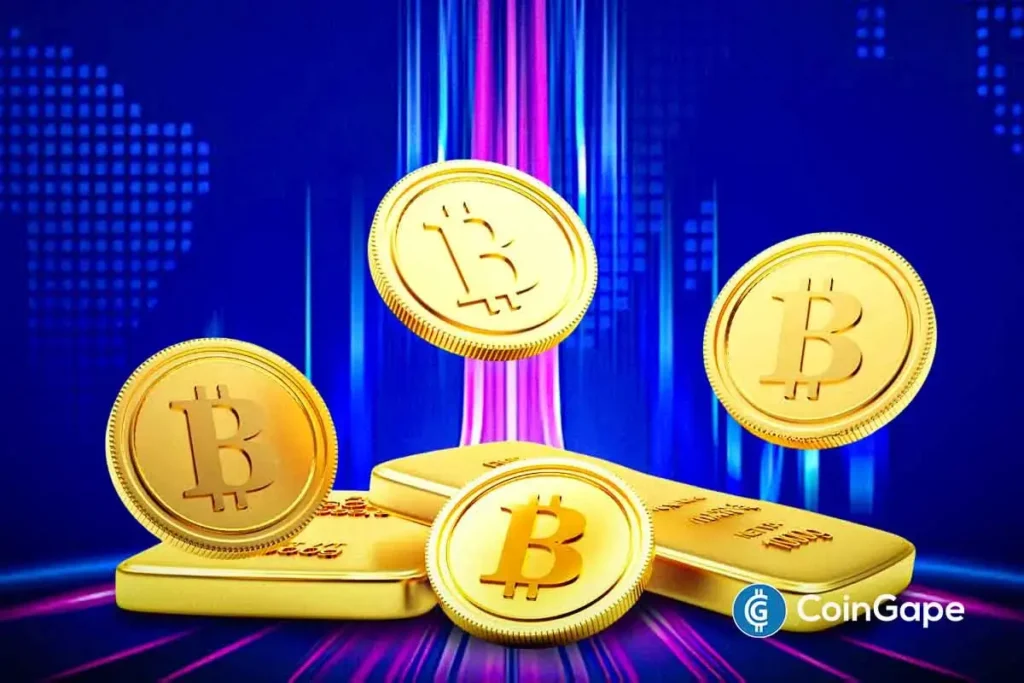Gold vs. Bitcoin: Navigating Economic Turbulence Amid Trade War Tensions
In recent months, the U.S. economy has exhibited signs of instability, prompting discussions about a potential global recession. As global tensions rise, particularly with the ongoing U.S.-China trade war, many investors are seeking safe havens for their assets. Gold has long been regarded as a reliable safeguard during economic downturns, and recent data shows that its price has skyrocketed to unprecedented levels, even reaching a peak of $3,200 per ounce. Meanwhile, Bitcoin, despite its historical volatility, has shown resilience, bouncing back to around $82,000 after dipping below $75,000. This raises an essential question for investors: with economic uncertainty on the horizon, which asset—gold or Bitcoin—will emerge as the preferred choice in turbulent times?
Economist and Bitcoin detractor Peter Schiff has sounded the alarm on the startling rise of gold, emphasizing its position as a safe haven asset. Observations note that the U.S. dollar’s strength is diminishing, stock futures are declining, and the yield on 10-year Treasury bonds is edging near a critical threshold of 4.5%. Schiff argues that crossing this yield point could lead to catastrophic financial market repercussions. In a tweet, he stated, "When it does this could spiral out of control." This sentiment is echoed by the data indicating that gold’s appreciation has surged nearly 15% since the start of 2025, while Bitcoin’s value has dropped 12%. Investors are increasingly turning to gold as a perceived safety net amid fears of economic instability.
The U.S. bond market is also experiencing considerable fluctuation, which signifies a potential risk for investors. Traditionally, during times of economic strain, investors pivot away from equities and seek the security of the bond market, which usually leads to falling yields. However, recent trends show an unusual increase in Treasury yields, as China has been actively dumping U.S. T-bills even while accumulating gold. This shift signals a changing landscape where traditional safe-havens, like Treasury bonds, are no longer viewed as secure options. The market is reflecting a growing anxiety over the dollar’s viability, and investors are seeking diverse alternatives to hedge against uncertainty.
Amidst these market shifts, Bitcoin is witnessing a renewed accumulation among significant stakeholders, commonly referred to as "whales." According to data from blockchain analytics firm Santiment, the number of wallets holding 10 or more BTC has surged following President Trump’s announcement of a tariff pause. This resurgence in whale activity is a positive indicator, suggesting that influential market players maintain confidence in Bitcoin as a long-term asset. While gold is seeing unprecedented highs, Bitcoin’s narrative should not be overlooked, especially considering the favorable sentiment from large holders during periods of uncertainty.
Factors contributing to Bitcoin’s allure include expectations of potential Federal Reserve rate cuts, which can elevate cryptocurrency valuations. As inflationary concerns mount and economic data trends influence monetary policy, Bitcoin remains positioned as an alternative asset that aligns with the expectations of a fluctuating economic landscape. It thrives in markets where traditional financial frameworks falter, providing investors with a potential hedge against inflation and currency depreciation.
In conclusion, as the specter of a global recession looms and trade conflicts escalate, investors are increasingly confronted with a choice between gold and Bitcoin. On one hand, gold has proven its status as a time-tested safe haven with significant recent gains. On the other hand, Bitcoin, characterized by its inherent volatility, is attracting renewed interest, especially among institutional investors. The decision ultimately hinges on an investor’s risk tolerance and market outlook. As we continue into 2025 and beyond, both assets are poised to play critical roles in personal portfolios amid evolving economic conditions. Those who actively monitor market trends may find opportunities to utilize both gold and Bitcoin effectively, navigating the complexities of today’s financial environment.


